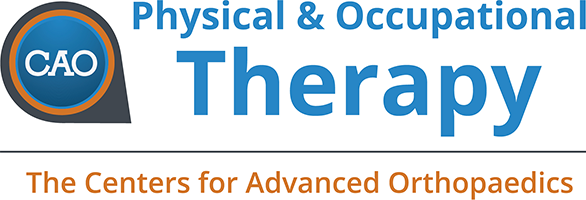Hand Therapy


Hand therapy is the art and science of evaluating and treating injuries and conditions of the upper extremity which includes the shoulder, elbow, forearm, wrist and hand. A hand therapist is an occupational therapist or physical therapist who specialize in treatment of pathological upper extremity conditions resulting from trauma, disease, congenital or acquired deformity. Hand therapists provide non-operative interventions, preventative care and post-surgical rehabilitation for a wide variety of upper extremity disorders. They work closely with orthopedic surgeons who also specialize in the hand to ensure maximal outcomes for patients. Hand therapists bridge the gap from medical management of upper extremity conditions to successful recovery, allowing individuals to function normally in their daily lives.
What is hand therapy treatment?
Treatment for hand therapy uses a variety of therapeutic interventions to help return a person to their highest level of function. It evolved from the need for a specialist with the knowledge and experience required to manage the challenging recovery of complex hand and upper extremity injuries. It is the merging of occupational and physical therapy theory and practice that combines comprehensive knowledge of the structure of the upper limb with function and activity. Using specialized skills in assessment, treatment and splint fabrication, hand therapists provide therapeutic intervention to prevent dysfunction, restore function and/or reverse the progression of pathology of the upper limb in order to enhance an individual’s ability to execute tasks and to participate fully in life situations
A hand therapist may achieve advanced certification as a certified hand therapist, referred to as a CHT. To obtain the CHT credential, a hand therapist must practice for a minimum of three years, accumulating a minimum of 4,000 hours of treatment for hand and upper extremity disorders. Certified hand therapists must also pass a rigorous certification exam to demonstrate their competency in assessment and treatment of the upper extremity. Every CHT is required to demonstrate continued professional development and competency by recertifying every five years.
How is hand therapy treatment performed?
Hand therapists bridge the gap from medical management of upper extremity conditions to successful recovery, allowing individuals to function normally in their daily lives. Hand therapists provide non-operative interventions, preventative care and post-surgical rehabilitation for a wide variety of upper extremity disorders, from simple fingertip injuries to complex replanted extremities. Patients with chronic conditions, such as arthritis, or neurologic conditions, such as a stroke, can benefit from therapy through education on joint protection and energy conservation, and with recommendations for adaptive equipment or devices to improve function. A hand therapist employs a variety of techniques and tools, including activity and exercise programs, custom orthotic fabrication, management of pain and swelling and wound and scar care. A hand therapist can also provide industrial services such as functional capacity evaluations, work hardening/work conditioning and ergonomic evaluations to assist employees in performing their work duties in a safe and effective way.
What are the benefits of hand therapy?
A qualified hand therapist is trained to evaluate and treat any problem related to the upper extremities. They are trained to help you in the following ways:
- Manage and improve pain
- Regain strength and function
- Increase range of motion and dexterity
- Desensitize nerves following injury or trauma
- Provide education and training to adapt to daily activities and responsibilities
- Reduce the need for corrective/reparative surgery
Common hand therapy conditions
- Arthritis
- Amputation
- Carpal Tunnel Syndrome
- DeQuervain's Disease
- Dupuytren's Disease
- Fractures and Dislocations
- Wrist Injuries
- Joint Replacement for Arthritis
- Ligament Tears/Instability
- Repetitive Strain Conditions
- Shoulder Conditions
- Sports Injuries
- Tendon Injuries
- Tennis Elbow
- Worker's Compensation Injuries


